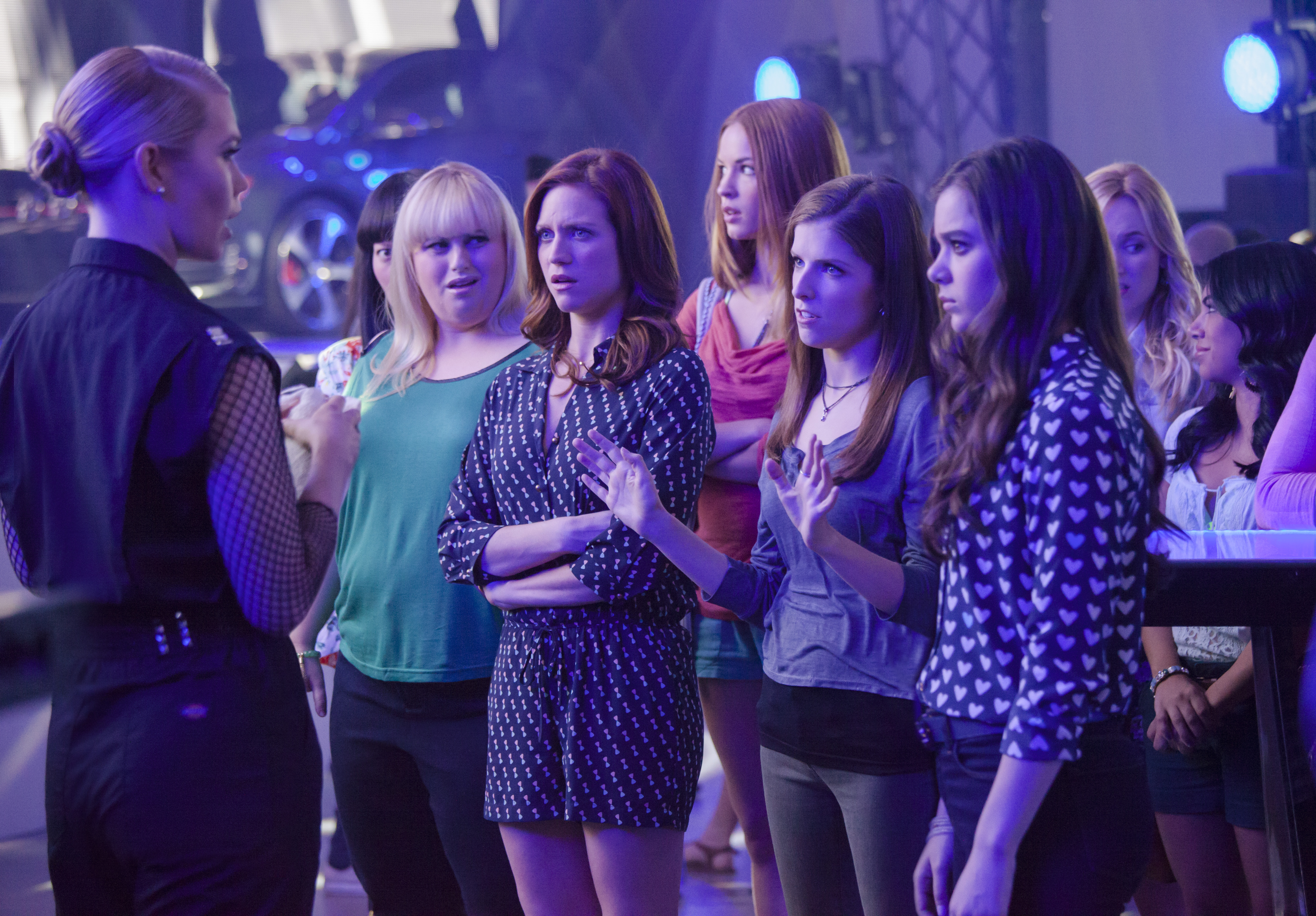
There’s no denying that Pitch Perfect, released in 2012, was a landmark musical-comedy. Depicting a quirky take on college acapella, featuring cinema’s first prominent female DJ, and jumpstarting a mass media frenzy alongside the likes of Glee and the Pentatonix, the original creates some enormous shoes to fill.
Its sequel, Pitch Perfect 2, simply cannot aca-compare.
The film drowns in the culture that the original helped to create.
The movie begins with a familiar comic set-up; reigning acapella champions the Barden Bellas perform a mash-up of pop songs for an esteemed audience—made clear through stock footage of spectators Michelle and Barack Obama—only for Fat Amy (Rebel Wilson) to accidentally expose her genitalia. For the second time in four years, the Bellas are humiliated and nearly disbanded, and must perform in a series of competitions to win back their dignity.
Out of this formulaic nadir comes a series of gags, including hate mail from Supreme Court Justice Sonia Sotomayor and an additional performance that literally goes up in flames. Pitch Perfect 2 has no qualms tearing apart the Bellas for our amusement, but the problem lies in the fact that it hardly manages to put them back together. Until the finale performance, the audience sees no more than a glimmer of the talent and teamwork that made the group great in the first place.
The Bellas become even more pitiful in comparison to rival German acappella group Das Sound Machine, or DSM. Sassy, tall, talented and intimidating, the characters from DSM are a thrill to watch as they verbally abuse their competitors and give spectacularly dark performances, the most awesome of which involves a vocal imitation of the dubstep drop from DVBBS’ electro-house hit “Tsunami.” Each of DSM’s performances is so dazzling, it becomes an exercise in patience to tolerate their absence, especially when the movie expects the viewer to root for an apparently inferior group.
The movie also warps the small, humble charm of college acapella by injecting a sobering dose of the ruthless music industry, which Beca (Anna Kendrick) witnesses firsthand at an audio internship. The narrative attempts to bring acapella into the “big leagues,” but it only strips the carefree passion inherent in singing covers. The film drowns in the commercial culture that the original helped to create.
Though there are plenty of laughs to be had, Pitch Perfect 2 fails to uphold the quirky relatability of the original.



